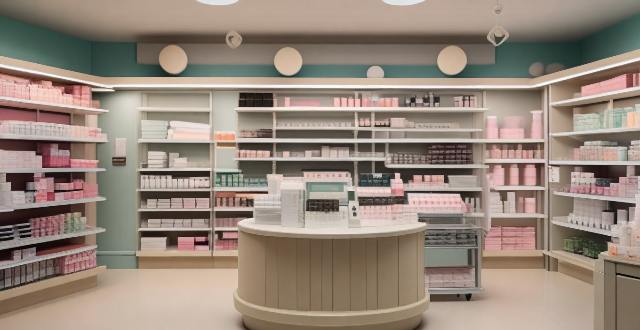Temperature changes can significantly impact the longevity and effectiveness of cosmetics. High temperatures can cause active ingredients to degrade, leading to reduced effectiveness and potential side effects. Separation and spoilage can also occur in certain types of cosmetics when exposed to heat. Low temperatures can cause changes in texture and consistency, making products difficult to use effectively. Crystallization can also occur, reducing the product's effectiveness. To ensure the longevity and effectiveness of cosmetics, it is essential to store them properly by avoiding direct sunlight, keeping away from extreme temperatures, using airtight containers, and checking expiration dates regularly.

Can Temperature Changes Affect the Longevity of Cosmetics?
Introduction
Cosmetics are an essential part of many people's daily routines. They help us look and feel our best, but have you ever wondered if temperature changes can affect the longevity of your favorite products? In this article, we will explore how temperature fluctuations can impact the shelf life and effectiveness of cosmetics.
The Impact of Temperature on Cosmetics
High Temperatures
Degradation of Active Ingredients
High temperatures can cause the active ingredients in cosmetics to degrade over time. This degradation can lead to a reduction in the product's effectiveness and potential side effects. For example, vitamin C, a common antioxidant found in skincare products, can become unstable and lose its potency when exposed to high temperatures.
Separation and Spoilage
High temperatures can also cause separation and spoilage in certain types of cosmetics, such as emulsions (products that combine oil and water). When these products are exposed to heat, the oil and water can separate, resulting in an unusable product.
Low Temperatures
Changes in Texture and Consistency
Low temperatures can cause changes in the texture and consistency of cosmetics. For example, creams and lotions may become thicker and harder to apply, while liquid foundations may become thinner and runny. These changes can make it difficult to use the product effectively.
Crystallization
Some cosmetics contain ingredients that can crystallize when exposed to low temperatures. This crystallization can cause the product to become grainy or gritty, making it uncomfortable to apply and reducing its effectiveness.
Best Practices for Storing Cosmetics
To ensure the longevity and effectiveness of your cosmetics, it is essential to store them properly. Here are some best practices:
- Avoid direct sunlight: Store your cosmetics in a cool, dry place away from direct sunlight. Sunlight can cause the active ingredients in your products to degrade more quickly.
- Keep away from extreme temperatures: Avoid storing your cosmetics in areas with extreme temperatures, such as near a heater or in a cold garage. Instead, keep them at room temperature or slightly cooler.
- Use airtight containers: If possible, store your cosmetics in airtight containers to prevent exposure to air and moisture, which can cause spoilage.
- Check expiration dates regularly: Be sure to check the expiration date on your cosmetics regularly and discard any products that have expired. Using expired products can be harmful to your skin and may not provide the desired results.
In conclusion, temperature changes can indeed affect the longevity of cosmetics. By following these best practices for storage, you can help ensure that your favorite products remain effective and safe to use for as long as possible.